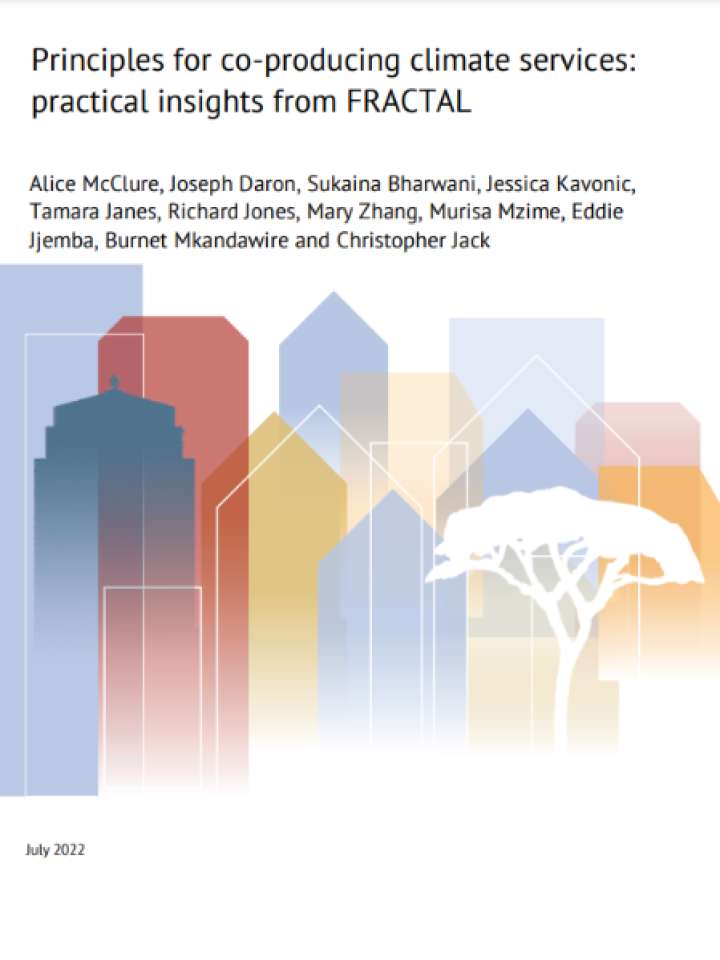Principles for co-producing climate services: practical insights from FRACTAL
This working paper contributes to the body of knowledge on principles for co-producing climate services by reflecting on and sharing experiences from the Future Resilience of African CiTies and Lands (FRACTAL) project. There is growing emphasis on co-producing climate services, particularly to foster partnerships and mutual learning between stakeholders across the climate services landscape. This paper begins by providing a summary of messages from the literature that relates to principles for co-producing climate services, which are categorised according to: i.) capacities of stakeholders involved in the processes; ii.) design of coproduction processes; and iii.) institutional, policy and environmental factors. The principles that supported co-production of climate services during FRACTAL are then presented, which were identified during a retrospective and reflective study that was implemented near the end of the project.
The paper identifies principles that were particularly important in supporting the co-production of climate services during FRACTAL. Some of the principles highlighted includes bigger picture (systems) thinking, respect and trust, neutral space and enabling process, catalysing (African) agency, process-driven iteration, transdisciplinarity and (un)comfortable differences, and inclusivity and collaboration. Many of the FRACTAL principles are similar to those that are documented in the literature more generally. However, several conceptual and practical developments associated with principles were gleaned by reflecting on FRACTAL experiences. The paper also reflects on the application of principles in virtual engagements during the COVID-19 pandemic (2020/2021). While people across the globe increasingly strive for effective and meaningful coproduction of climate services, there is also a growing acknowledgement that there is no single ‘recipe for success’ to enable this way of working. A set of guiding principles provides a more flexible and adaptable approach for guiding co-production. It is the hope of the FRACTAL team that these principles will be applied and tested in follow on work to better understand their applicability and universality.
Explore further
